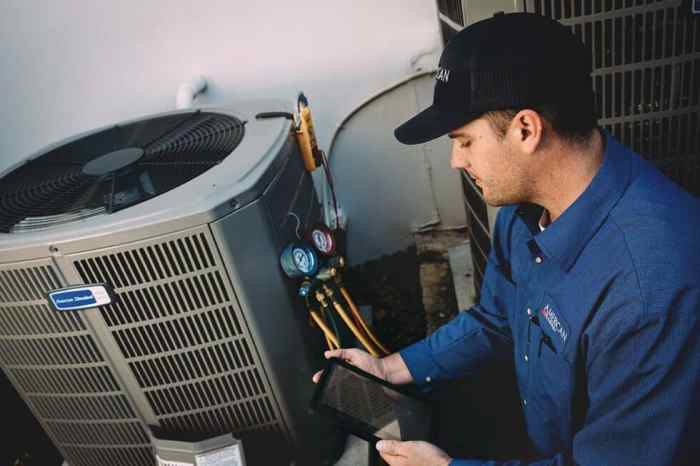Why You Should Never Skip an AC Tune-Up Before Summer: The Key to a Cool and Efficient Season
As we delve into the importance of AC tune-ups before summer, we uncover the critical role that regular maintenance plays in ensuring your cooling system operates at its best. From maximizing energy efficiency to extending the lifespan of key components, the benefits are numerous and essential for a comfortable indoor environment during the hot months ahead.
Importance of AC Tune-Up
Regular maintenance for your AC unit is crucial to ensure optimal performance, energy efficiency, and longevity of the system. Skipping a tune-up can have significant consequences on the overall functionality of your air conditioner, leading to costly repairs and reduced comfort during the sweltering summer months.
Impact of Skipping a Tune-Up
- Reduced Efficiency: Without regular maintenance, your AC unit may struggle to cool your home efficiently, resulting in higher energy bills.
- Increased Breakdown Risk: Neglecting tune-ups can lead to unexpected breakdowns when you need your air conditioner the most, causing inconvenience and discomfort.
- Poor Air Quality: A poorly maintained AC unit can circulate dust, allergens, and pollutants, impacting the air quality in your home and potentially causing health issues.
Benefits of a Well-Maintained AC Unit During Summer
- Improved Performance: A properly tuned AC unit will cool your home more effectively, creating a comfortable indoor environment even on the hottest days.
- Energy Savings: Regular maintenance ensures that your air conditioner operates efficiently, reducing energy consumption and lowering your utility bills.
- Extended Lifespan: By taking care of your AC unit, you can prolong its lifespan and delay the need for costly replacements, saving you money in the long run.
Components Checked During Tune-Up
Regular AC tune-ups involve a thorough inspection of key components to ensure optimal performance and efficiency. By checking and maintaining these components, you can extend the lifespan of your air conditioning system and prevent costly repairs in the future.
Air Filters
One of the most crucial components checked during an AC tune-up is the air filters. Clogged or dirty air filters can restrict airflow, reduce efficiency, and lead to breakdowns. Regularly changing or cleaning air filters can improve indoor air quality and prevent strain on the system.
Refrigerant Levels
Checking refrigerant levels is essential for the proper functioning of your AC unit. Low refrigerant levels can indicate a leak or other issues that need to be addressed. Maintaining the right amount of refrigerant ensures optimal cooling performance and energy efficiency.
Condenser Coils
Condenser coils are responsible for releasing heat from your home. Over time, these coils can accumulate dirt and debris, reducing their ability to transfer heat effectively. Cleaning and inspecting the condenser coils during a tune-up can improve overall system efficiency.
Thermostat Calibration
Calibrating the thermostat is essential for accurate temperature control and energy savings. A properly calibrated thermostat can prevent the system from overworking and help maintain a comfortable indoor environment. During a tune-up, technicians will ensure the thermostat is functioning correctly.
Electrical Components
Inspecting electrical components such as wiring, contacts, and capacitors is crucial for safety and efficiency. Loose connections or faulty components can lead to system malfunctions or even electrical hazards. Regular maintenance can identify and address these issues before they escalate.
Cost Comparison
When it comes to the cost of AC maintenance versus repairs, the choice is clear. Investing in regular tune-ups can actually save you money in the long run by preventing costly issues that can arise from neglect.
Common Issues from Skipping Tune-Ups
- Refrigerant leaks: Without proper maintenance, refrigerant levels can decrease, leading to inefficient cooling and potential compressor damage.
- Dirty coils: Over time, dirt and debris can build up on the coils, reducing the efficiency of the system and causing it to work harder, leading to higher energy bills.
- Electrical component failure: Neglecting tune-ups can result in wear and tear on electrical components, increasing the risk of malfunctions or system failure.
Saving Money in the Long Run
By investing in regular AC tune-ups, you can address minor issues before they escalate into major problems that require expensive repairs or replacements. This proactive approach not only ensures the longevity of your system but also helps you avoid unexpected breakdowns that can disrupt your comfort and cost you more in the end.
Energy Efficiency
Ensuring your AC unit is well-tuned can significantly improve energy efficiency, leading to reduced energy consumption and lower utility bills.
Maximizing Energy Efficiency Through Tune-Ups
- Regular tune-ups help clean and replace air filters, allowing for better airflow and reducing strain on the system, which in turn leads to lower energy consumption.
- Checking and adjusting refrigerant levels during tune-ups ensures optimal performance, preventing the AC unit from overworking and consuming excess energy.
- Inspecting and cleaning the evaporator and condenser coils can improve heat transfer efficiency, helping the system cool the air more effectively without using extra energy.
- Tightening electrical connections and lubricating moving parts during maintenance can also contribute to energy savings by ensuring the system runs smoothly and efficiently.
Final Wrap-Up

In conclusion, prioritizing an AC tune-up before summer is not just about convenience—it's about safeguarding your system's performance, longevity, and your wallet. By investing in maintenance now, you'll reap the rewards of a smoothly functioning AC unit that keeps you cool and comfortable all summer long.
General Inquiries
Is skipping an AC tune-up really that detrimental?
Yes, regular maintenance helps prevent costly breakdowns and ensures optimal performance throughout the summer.
What components are typically checked during an AC tune-up?
Key components like filters, coils, and refrigerant levels are inspected to ensure smooth operation.
How does regular maintenance contribute to energy efficiency?
Well-tuned AC units use energy more efficiently, leading to lower energy bills and a reduced environmental impact.